Seemingly innocuous photos of the wedding of a Chinese woman to an Indian man posted on a Chinese website have gone viral on the country’s social media channels, drawing a torrent of comments that bring into sharp focus some of the stereotypes India’s biggest neighbour harbours about it.
The photos on the Chinese website Tiexue.net appear to have been posted by the bride’s brother on April 10 in order to give his compatriots a glimpse of ordinary life in India. “Envy the beautiful Chinese woman who has married a sun-tanned Indian in an elaborate, happy life,” reads the headline. The post says, “Who says all Indians are poor, who says Indian life is sad? Look at my younger sister’s wedding. Indian life is happy!”
By Friday evening, the post had attracted around 790 comments from Chinese expressing their disapproval at the match.
“Congrats, new bride!” said one comment. “The groom has six brothers...guess it will be hard on you. Take care, yeah?”
Said another, “He might treat you like a princess right now. Yet because of all the differences that lie in the way you express yourself, your habits and your customs, within half a year I can guarantee you that once the novelty has worn off you might be facing more dire consequences than you would capable of even imagining. Your status would ultimately not be higher than that of Indian women, and what's worse is that even if you wanted a divorce it would be hard for you to carry through with it.”
Some of the comments focus on India’s caste system, a social system that the Chinese with their communist ways find most intriguing. Others speak of the dishonour that results from a Chinese woman bearing the children of a foreigner, especially those of a man from a less developed country. Readers also commented on India’s backwardness, poverty, underdeveloped infrastructure and scarcity of daily commodities and wondered why a Chinese family would ever wish this on her daughter.
The comments make it clear that the lack of engagement between the two countries has led their citizens to nurse awkward perceptions of each. While India continues to remain in awe of China’s economic prowess, ordinary Chinese people do not think highly of India. A survey conducted by the Pew Research Centre in 2012, found only 23% of Chinese people surveyed had a favourable opinion of India, while 62% had a negative one.
The only way to change Chinese ideas about India, it seems obvious, is to encourage more people-to-people contact. It wasn’t apparent from the web post exactly who the couple is, how they met or what they do. But the photos depict several of the Chinese bride’s relatives and friends visiting India for the wedding, and they seem to have enjoyed themselves.
Despite the criticism of this relationship, it's clear that more Sino-Indian marriages like this one would go a long way in dispelling the stereotypes.
The photos on the Chinese website Tiexue.net appear to have been posted by the bride’s brother on April 10 in order to give his compatriots a glimpse of ordinary life in India. “Envy the beautiful Chinese woman who has married a sun-tanned Indian in an elaborate, happy life,” reads the headline. The post says, “Who says all Indians are poor, who says Indian life is sad? Look at my younger sister’s wedding. Indian life is happy!”
By Friday evening, the post had attracted around 790 comments from Chinese expressing their disapproval at the match.
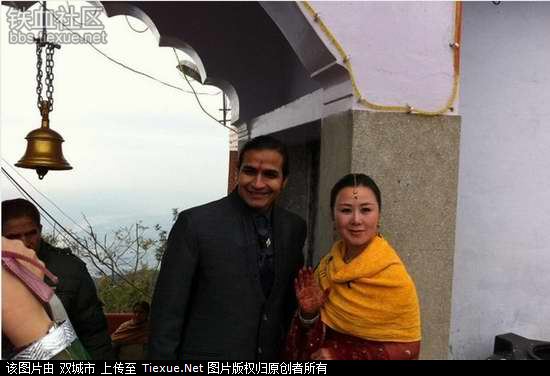
“Congrats, new bride!” said one comment. “The groom has six brothers...guess it will be hard on you. Take care, yeah?”
Said another, “He might treat you like a princess right now. Yet because of all the differences that lie in the way you express yourself, your habits and your customs, within half a year I can guarantee you that once the novelty has worn off you might be facing more dire consequences than you would capable of even imagining. Your status would ultimately not be higher than that of Indian women, and what's worse is that even if you wanted a divorce it would be hard for you to carry through with it.”
Some of the comments focus on India’s caste system, a social system that the Chinese with their communist ways find most intriguing. Others speak of the dishonour that results from a Chinese woman bearing the children of a foreigner, especially those of a man from a less developed country. Readers also commented on India’s backwardness, poverty, underdeveloped infrastructure and scarcity of daily commodities and wondered why a Chinese family would ever wish this on her daughter.
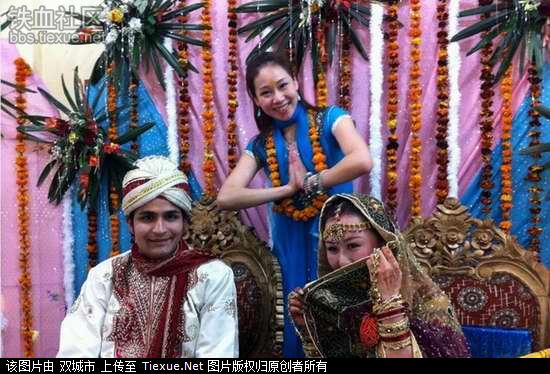
The comments make it clear that the lack of engagement between the two countries has led their citizens to nurse awkward perceptions of each. While India continues to remain in awe of China’s economic prowess, ordinary Chinese people do not think highly of India. A survey conducted by the Pew Research Centre in 2012, found only 23% of Chinese people surveyed had a favourable opinion of India, while 62% had a negative one.
The only way to change Chinese ideas about India, it seems obvious, is to encourage more people-to-people contact. It wasn’t apparent from the web post exactly who the couple is, how they met or what they do. But the photos depict several of the Chinese bride’s relatives and friends visiting India for the wedding, and they seem to have enjoyed themselves.
Despite the criticism of this relationship, it's clear that more Sino-Indian marriages like this one would go a long way in dispelling the stereotypes.
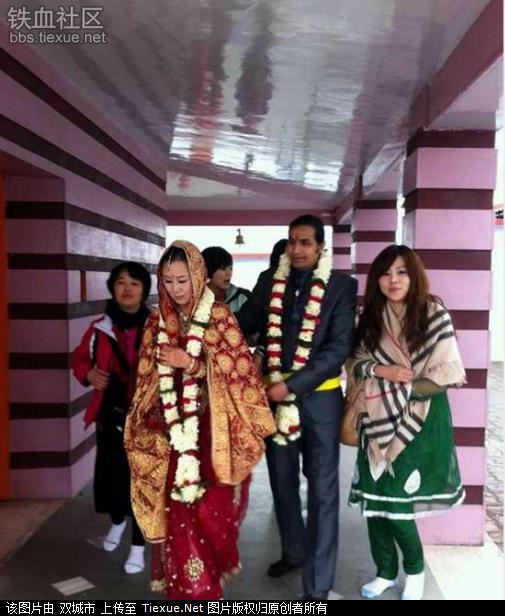
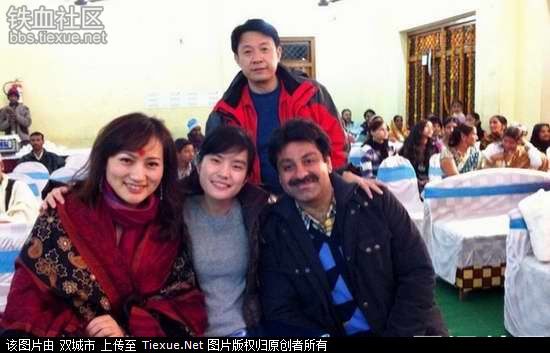
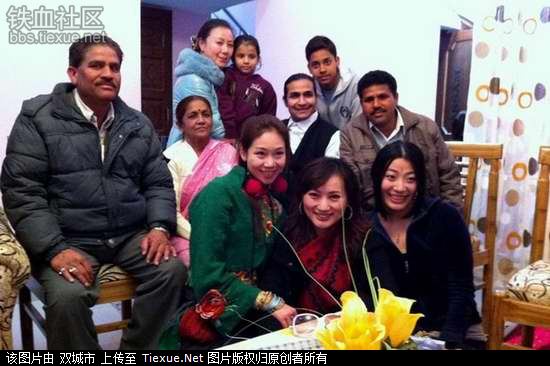
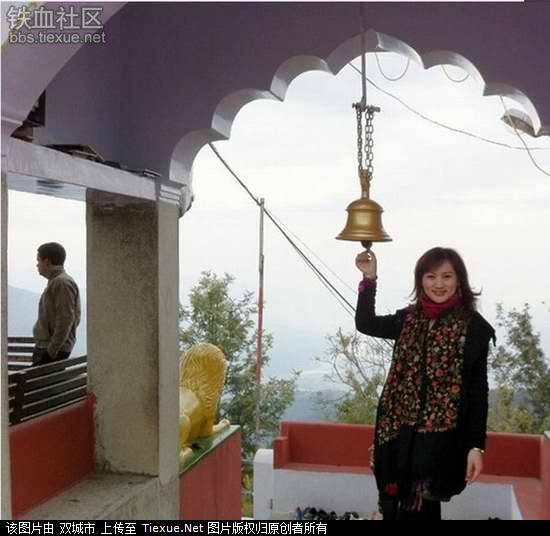
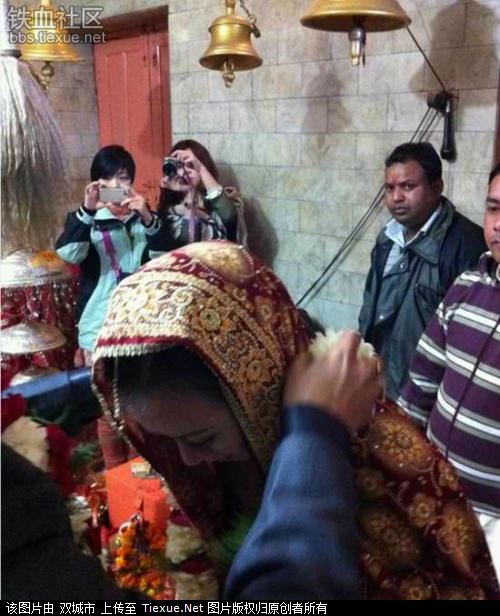
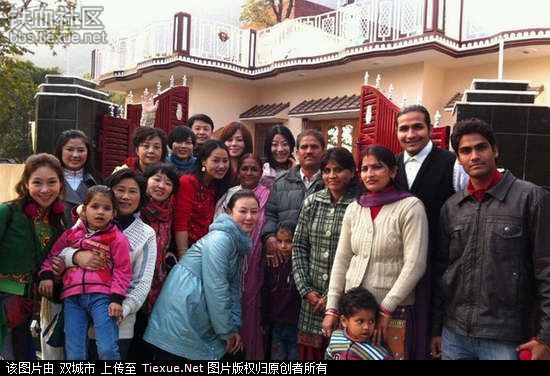
Buy an annual Scroll Membership to support independent journalism and get special benefits.

Our journalism is for everyone. But you can get special privileges by buying an annual Scroll Membership. Sign up today!
